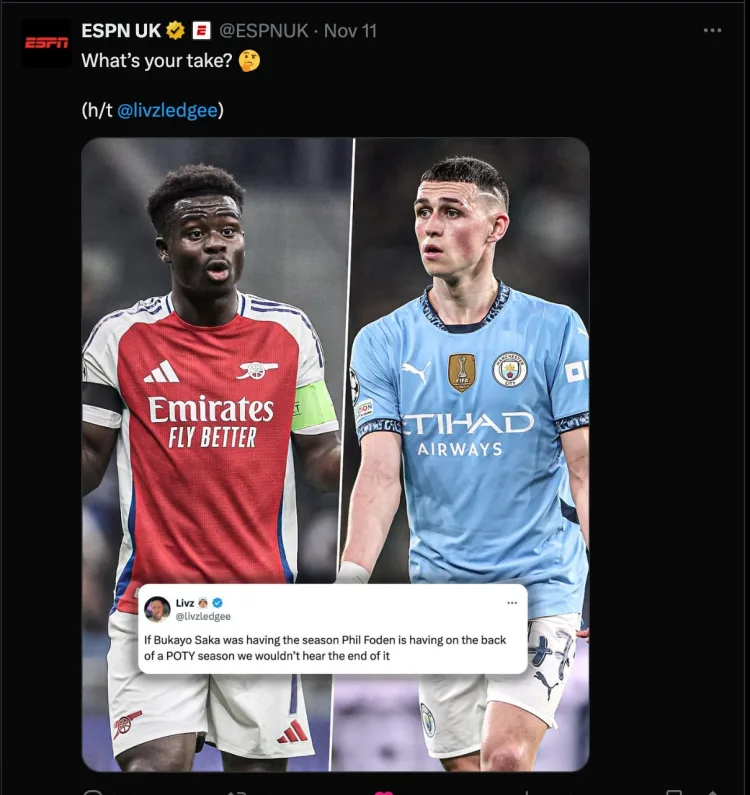- 22 hours ago
The Guardian is right: Twitter is post-truth, and sports publishers should ignore it

I should start by saying that this article is politically-agnostic and I’ve no desire to debate the relative merits of Twitter’s role, or not, in electing a new president.
But what’s abundantly clear now is Twitter, once the choice for up-to-date news, is now absolutely unusable for such a purpose and, even worse, it’s actively encouraging manufactured outrage which isn’t reflective of any real-life opinion.
The Guardian has announced it will no longer publish on there. I imagine it will not be the last.
From the minute Elon Musk shoehorned in his ‘for you’ section to mimic other platforms, then actively paid blue-checked users for the volume of their interactions, it was completely toast.
Again, this is nothing to do with the specific topics involved, the teams, the sports, the political leanings or any of those things, it comes back to, simply, people are losing their mind on there, and a significant amount of it is simply made up.
From a football perspective, the Arsenal/Liverpool/Chelsea/Man Utd/Man City camps being created all navigate towards the same inane accounts who, it’s been suggested, actively coalesce on WhatsApp to make up something everyone can get angry about.
It helps their interactions and gets them paid, even at the relatively small levels of payouts that accounts in the 40-50k follower range will receive.
Don’t get me wrong. There are some fans - even journalists - on there that have gone off the reservation and really need to be subjected to real humans in the real world once again.
Journalists - shake your desire for clout
But one of the main problems that is causing so much ‘news’ to still be surfaced on there is that Twitter is the one place where a journalist with a following can still feel valued and part of the conversation - even if that conversation generally hates them as individuals.
It’s a wonder to me that some of them continue to engage with the very worst people around - they would have to be to comment in the way they do - but it’s because we’re in a world of their diminishing significance amidst a rise of what I call idiot engagement.
These guys are, in the most, professionals who are watching their impact slip away in favour of a bunch of clout grabbers who often could not be more wrong, know how wrong they are being deliberately, but are getting work off the back of it.

But they’ve got to give up because it’s a losing battle for them, and for media that wants to hold organisations to any kind of accountability. Look at the above post from ESPN, quoting a random statement from a similarly random account just in order to achieve some arbitrary level of engagement. It should be beneath ESPN and everyone who works there, but it’s not because Twitter is ‘where the fans are’.
It’s increasingly not, and certainly not the type that would engage with a journalist, or a brand, in any type of good faith. These people hate everything and everyone that disagrees with their worldview, lionising those that think similarly, until such a time they don’t, and they are turned on as well.
In a similar way that reading a comments section on any content pretty much anywhere on the internet is a fool’s errand, Twitter is one gigantic, continuous, never-ending comment section of bad takes from users financially incentivised to provide them.
It’s 4Chan for football, where the very worst opinions live, and where any reasoned debate goes to die.
David Coote: Information, and disinformation
Some may point to the breaking of the David Coote debacle, regarding the referee’s comments on Jurgen Klopp and Liverpool, as being the type of story you could only find on Twitter. That’s valid, but I’m struggling to think of any other that’s happened on there recently that wasn’t created off the back of totally synthetic fan sentiment.
Never forget - most of these people have never been in a surrounding of fans in real life, and there is definitely a feeling that the further way you are, the more likely you are to overreach your fandom.
Some US-based analytics pieces for example, feel as if they are talking about a different sport, while at the opposite end, random clips of referees are surfaced in an attempt to make some wider point - all for the retweets, and all for the likes. And that’s before we get to the proliferation of AI-generated comments clogging up the platform just as spam did to websites many years ago.
And revisiting Coote, many facts regarding the matches he refereed, or indeed didn’t, were completely made up and repeated in the aftermath with precious little attempt to establish facts.
Twitter - life is better without it
I’ve no doubt that the platform will eventually eat itself and while we are a long way from finding a replacement - good luck finding a football comment on Blue Sky, for example - it should have been ignored by the sane among us some time ago.
Even seven or eight years ago, the idea of gauging opinion on a topic from a comments section would have had an editor sent back to media school. The fact it’s the norm is everything that’s wrong with professional content production.
In order to assess their future impact in a world where AI will be commonplace, media organisations need to ask - are we better than this? Some might not like the answer.
Paul Macdonald was writing for his substack channel: Game Within the Game



















